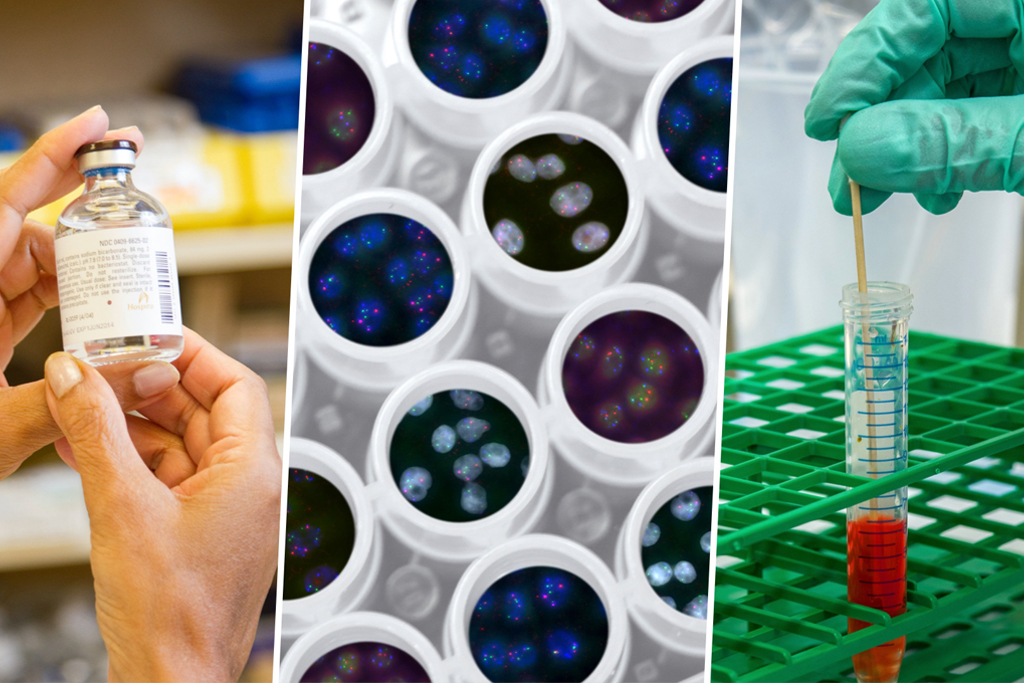Non-Medical Degree Careers for Biology Graduates

While it’s a path many have found, not all biology graduates go to medical school. Nonetheless, many find rewarding and growing careers in healthcare with tons of opportunities. According to the Bureau of Labor Statistics, employment in healthcare occupations is projected to grow 13 percent over the next decade, resulting in about 2 million new jobs. In fact, most of these are not medical doctors. There are so many non-medical careers available for biology graduates interested in healthcare, some requiring more education, others not. A few are listed below.
Biomedical Researcher
Medical scientists or biomedical researchers conduct research in laboratories and offices focused on improving our understanding of human health. Many biomedical researchers have PhDs, but not all. Many work for clinics and hospital systems, as well as universities or other non-profit organizations conducting research. Another career working with biomedical researchers that requires a bachelor’s degree as an entry-level is biological technician. The BLS lists their median pay at $48,140 per year, and they can get tons of hands-on experience in the lab if you aren’t sure about pursuing a PhD. If you do choose to pursue an advanced degree, medical scientists with advanced degrees had a 2021 median pay at $95,310.
Right in John Carroll’s backyard, the Cleveland Clinic is a non-profit, hospital and medical research facility where undergraduate students conduct original research alongside biomedical researchers in various fields through John Carroll’s Celebration of Scholarship program. If you’re a biology student thinking about the research route for a career in healthcare, this is a perfect opportunity to see if it is something that interests you.
Genetic Counselor
Genetic counselors have an advanced understanding of the tiny variations in sections of DNA called genes that reveal more and more about increased risks of certain health conditions. Genetic counselors work to help guide and support patients seeking more information about how inherited diseases and conditions might affect them or their families, to interpret genetic test results based on personal and family history, and to help make proactive decisions with this knowledge in mind. Becoming a genetic counselor typically involves earning at least a master’s degree that, according to the National Society of Genetic Counselors, includes clinical experience in various genetic specialties, coursework in human genetics, psychology, bioethics, research methodology, as well as potential certification requirements.
John Carroll biology students thinking about genetic counseling can take courses that prepare them right away, including BL 213 Genetics, where you study the principles of molecular, transmission, quantitative, and population genetics as well as the various social and ethical implications of genetics.
Registered Nurse
Registered nurses provide care to patients in various healthcare settings, whether that’s in a hospital, an outpatient facility, or long-term care or assisted-living facilities. Nurses are often the first and last people that a patient sees and looks to for treatment, often on their hardest days. Being a nurse is a rewarding profession and requires an understanding of often very complex and broad healthcare issues.
The minimum degree required to become a nurse is an associate’s, however, if you have bachelor’s in biology, you can add on an RN program, like the JCU BSN, or do a second-degree bachelor’s of science in nursing. The median salary is $77,600 per year.
Pharmacist
Pharmacists work to allocate, understand, and dispense prescriptions. Most pharmacists work in pharmacies, providing drugs and treatment to the general public, however many also work for hospitals, insurance companies, and other healthcare providers to provide advisory roles regarding treatment options.
Pharmacists must earn a Doctor of Pharmacy (Pharm.D.), typically a 4-year professional degree. They must also be licensed, which requires passing two exams. The 2021 median pay for pharmacists was $128,570 per year.
Other healthcare careers for biology graduates include: careers in biotechnology or medical devices; hospital administrators; biochemistry; healthcare content writing; microbiologist; management; and more.
Your Future Begins at John Carroll University
John Carroll University bachelor’s of science in biology students prepare for diverse careers across healthcare beyond medical school. While the curriculum matches many requirements for applying to medical school, it’s also a curriculum that builds a crucial understanding in genetics, human anatomy and physiology, biochemistry, and cutting-edge technologies like artificial intelligence in the field as a whole.
JCU is a private Jesuit university located in University Heights, Ohio, near Cleveland.
